Tomorrow’s All-Stars: Meet Team DC’s 2021 Scholarship Recipients
Team DC’s student awardees talk about being out in high school sports, efforts to restrict trans athletes, and what a scholarship means to them.

“Winning this award, and this organization existing at all, is a huge support to myself and other LGBTQ students and athletes,” says 18-year-old Otto Kammer, one of the recipients of this year’s Team DC Scholarships. “For some, it can be the last push of support they need to come out. For others, it can be an encouraging sign to keep being out and proud in our activities.”
Kammer and eight of his LGBTQ contemporaries will be fêted at an in-person, invite-only event on Thursday, July 15, at the Hilton Washington D.C. National Mall hotel. There, the DMV-area student-athletes will each receive $2,000 from Team DC, an umbrella organization for LGBTQ sports leagues in the D.C. area. The scholarship funds are designed to help students defray some of the costs of higher education while continuing to participate in competitive or intramural sports.
“The scholarship program helps students continue their sports careers,” says Brent Minor, executive director of Team DC. “The hope is they will eventually come back to the community and still be engaged in sports,” “Our goal is to help make sports a safe environment for people in which to play and a welcoming environment.”
This year’s recipients are a varied lot, representing eight different schools from the D.C. area with sports ranging from volleyball and field hockey to rock climbing and drumline. They will be attending several highly-rated schools, including the University of Virginia, Duke University, UC Berkeley, and Loyola University New Orleans.
“When you look at this year’s recipients, their GPAs are all generally quite high,” says Minor. “But reading the letters of recommendation, you often find that it’s not just in sports where their leadership shines through and where their strengths are. It’s also in terms of the different school activities in which they’re involved. These are multi-activity students.”
Charles Roth, who heads Team DC’s scholarship committee, says that while a student’s GPA and athletic accomplishments may be a factor in the application process, the committee also takes into consideration financial needs when awarding scholarships.
“We try to look at it from all different ends to see who we can best help benefit, as well as who is primed and ready to move forward to the next big step in their life,” Roth says.
While most of the students say they never experienced direct forms of discrimination, Roth notes that the essays detailing their personal growth and journeys toward self-acceptance are especially powerful and moving. Determining finalists is difficult, he says, because the scholarship committee often feels there are more deserving students than available funds.
“The students we have who go through the scholarship program, whether it be this cycle or in past cycles, are very brave. They are very courageous, and their stories are very emotional, but they’re also incredibly relatable,” Roth says. “Students use sports as a relief, as a comfort. We’ve had students who may not have felt comfortable coming out at home, or to their family, but were able to find an activity that they enjoy and can use as a release, where they can engage but also make friends, and, in some cases, eventually find the strength to come out.
“Finding a safe haven within sports helped build the courage for some of those students to be more confident and stride through life with their head up.”
Metro Weekly submitted questions to the awardees to learn more about their experiences in high school sports, as well as their thoughts on the current climate for out athletes in the field. Only one, Sarah Jones, was unable to participate. Two preferred to remain anonymous. Their responses, edited for length and clarity, follow.
How easy or hard was it for you to be out in your high school?
Anna Kolb (19, Lesbian, Thomas A. Edison High School, Alexandria (Fairfax), Va. – Softball, field hockey, basketball): Fairfax county is a pretty diverse community, so there was not an abundance of discrimination or hate against me or other identifying fellow LGBTQ+ members. I believe that means it was easy for me, but being labeled right off the bat for the rest of high school might not have been easy if I wasn’t already comfortable with who I am. First impressions are everything, and with high school, there are no do-overs.
DA (17, Queer, Alexandria City, Va. – Soccer): Being out in high school was not hard at all. I was so excited to be finally seen as a queer woman that any trepidation I had was far outweighed by my joy.
GK (18, Bisexual, Herndon, Va. – Rock Climbing): It was difficult to be comfortable enough to come out. While my school is generally accepting, there are still plenty of people who are casually homophobic, and it wasn’t unusual to hear the f-word and other slurs thrown around jokingly. I eventually found groups I was comfortable in, especially my school’s GSA, which made it much easier to be out.
Ajania Thaxton (18, Bisexual, Washington Latin PCS, D.C. – Volleyball): It was not difficult to be out in my high school, I was a bit wary about being out at first because it was a new school for me and I wasn’t sure what people’s reaction would be. But once I started coming out to close friends and saw their support, I was able to be out to most people in my high school.
Hailey Nguyen (18, Queer, Thomas Jefferson High School for Science and Technology, Vienna, Va. – Varsity Field Hockey, Basketball, Soccer): Relatively easy. Everyone I knew was supportive or indifferent, and there were many other out LGB students.
Dustin Connors (18, Transgender, Independence High School, Sterling, Va. – Ice Hockey): I didn’t come out because of [a] bad experience coming out in Ninth Grade and getting bullied.
Otter Kammer (18, Transgender, Washington-Liberty, Arlington, Va. – Marching band and Indoor Drumline): Overall, it was fairly easy. Arlington is generally a very inclusive area, and that’s reflected in the school systems. I did have a few unpleasant run-ins with individual students, and one event with a teacher, but nothing more than that.
Naomi Mansour (18, Lesbian Nonbinary, Washington-Liberty, Arlington, Va. – Dance): As a more introverted person, I struggled to find the balance between living my truth and ensuring my privacy and safety. It was hard for me to be out in high school because the first step to being out is coming out to yourself.

Do you feel the sports community is welcoming to the LGBTQ+ community?
Kolb: It definitely depends on the sport and where you practice that sport. Geographically speaking, yes, it’s great how tolerant and inclusive organizations are in some areas. However, not all people may be okay with the organization’s rules and regulations. It’s more about change and how comfortable are people with change when it comes to huge events like the Olympics compared to a local tournament.
DA: In my experience on a women’s soccer team, I found the community to be very LGBTQ+ friendly. This attitude was no doubt fostered by visible players like Megan Rapinoe and Abby Wambach and coaches like Jill Ellis on the U.S. Women’s National Team. I cannot speak to how leagues are different across genders, but at least in women’s leagues, the attitude is very welcoming.
GK: Sports generally have very tight-knit communities. I’ve found that in that type of community, the entire group acts as one, either completely or not at all accepting. Tradition plays a big part in a lot of sports, so anything that doesn’t fit the past expectations can often be seen as a threat to the sport, making it difficult for some groups to accept queer athletes.
Thaxton: I do not know much about how different sports communities welcome the LGBTQ community, but I think that it has gotten better.
Nguyen: I found my high school sports communities very welcoming. My teammates were incredibly supportive with many also out, openly questioning, or some of the best allies I know. Sports is where I felt the most comfortable. Outside of my experience playing girls’ high school sports, I feel how welcoming the greater sports community is varies considerably. For example, there are many more out athletes in women’s sports compared to men’s.
Connors: Depending on the sport, yes and no. I’ve never been able to come out to any teams I play on because boys typically aren’t as accepting.
Kammer: I feel it heavily depends on the sport. Girls softball, for example, is very likely to have LGBT participants. Boys football, on the other hand, is less likely to be welcoming, at least in my experiences with the members of those teams.
Mansour: In the dance community, males are assumed to be gay, but will still face discrimination if they are out. Strict dress codes and character roles limit trans and nonbinary dancers. The artform of dance allows for self-expression, but the community and institution can inhibit toxic environments, unsafe for members of the LGBTQ+ community.

Do you know any trans athletes? How do you feel about efforts to restrict trans athletes from competing?
Kolb: Personally I don’t know any. But I am familiar with trans women Olympic track runner CeCe Telfer. I do believe there should be some regulations in terms of testosterone, but no real restrictions as to them [not being allowed to] compete. They are participating in a particular gender sport because they want to be seen for who they are, not what is written in their birth certificate or to take anything away from the other competitors. I am not threatened by trans people. I see them as equals. I do know the differences genetically and scientifically, but I believe that hard work can prevail over any advantages. If a trans athlete wins something over me, I will accept and congratulate them. They worked hard, they earned it.
DA: I do not personally know any trans athletes, but I do know that kids should be able to play sports. Camaraderie, friendship, and teamwork are life lessons that no one in their right mind can justify depriving kids of. There are provisions that need to be made on the competitive or professional levels in the name of fairness, but outright bans are not the answer.
GK: The only trans athletes I know are unfortunately not in a position to be out in those communities. While many restrictions against trans athletes attempt to have a basis in biology, the line that many regulations draw isn’t as clear as it may seem. There are a variety of factors that go into biological sex, and hormones like testosterone, one commonly cited as a reason to restrict trans athletes, can vary wildly from person to person. Since the average person doesn’t need to have specific hormone levels in order to compete, the rules should not vary in any way due to additional hormones that are not taken for the purpose of the competition.
Nguyen: I don’t personally know any trans athletes, but am highly supportive of their opportunity to play sports. While I’d encourage everyone to play sports, I think for LGBTQ people playing sports offers the chance to find a great support system and community.
Connors: It is a complicated answer. I don’t think it’s fair to not allow any trans athletes to play, but I think being on hormones needs to be a firm rule to make it fairer. But again hormones don’t change everything, so it really is all a matter of opinion. I don’t think allowing teams to discriminate against anyone is fair regardless of the situation.
Kammer: Obviously, being a trans athlete, I strongly disagree with efforts to restrict people like me from competing. I also personally think all sports should be co-ed and separated purely by skill level and not gender. Cis female athletes have often proven themselves to be on par with — or better than — their cis male counterparts. If sports, in general, weren’t separated by gender at all, the issue of restricting trans athletes from competing would hardly exist.
Mansour: I know many athletes who are trans. Efforts to restrict and exclude trans athletes sadden me. Arguments to exclude trans athletes from sports lead me to conclude that sports shouldn’t be separated by gender. Physical activity can instead be labeled co-ed to include trans and nonbinary athletes.

How does it make you feel to have a major sports figure come out as LGBTQ?
Kolb: It makes me feel proud with extended bragging rights. It’s a win in my eyes, even though there’s nothing being fought over. The more successful people there are coming out with their true selves, the more encouraged others will be to do the same thing without fear. It also changes the world’s perspective on the LGBTQ+ community positively for future generations.
DA: I was incredibly proud of our progress as a country when I saw that Carl Nassib had come out. That said, there is still prejudice to be battled in every corner of the world. For example, there are still no out players on the English Premier League despite its more than 600 players. That statistic informs us that the culture in some professional sports is still not welcoming to LGBTQ+ players. Much progress is yet to be made.
GK: As an increasing number of athletes come out, I feel more and more hopeful that athletic leagues and fanbases will become accepting of the LGBT community. A major barrier towards acceptance is often exposure, so I’m incredibly grateful to the queer athletes who have come out.
Thaxton: It feels really empowering. When I heard Sha’Carri Richardson had come out and talked about her girlfriend, it made me really happy.
Nguyen: Happy! Happy to see them confident and proud to come out. Happy to see affirming responses by fans. Happy to have increased visibility of LGBTQ athletes and more role models for younger athletes to look up to.
Connors: Less alone.
Kammer: It always makes me really happy to see more major athletes come out. I think that non-LGBTQ people don’t really realize how common we are, so having not only athletes but also celebrities come out is a huge boost for visibility. While public responses aren’t always positive, I also admire when people in the public eye have the courage to come out when they know there will be major backlash.
Mansour: I am so proud and excited when major sports figures come out because they are sharing their truth, destigmatizing coming out/being out, and creating safe spaces for LGBTQ+ youth.
What does winning this award mean to you?
Kolb: This award means the world to me! I’m so honored to represent the LGBTQ+ athletic community alongside other great athletes. It also might mean good luck for the future, that I will do well and continue to make a good example of myself.
DA: Winning this award has taught me that there will always be people in the world that will support you if you devote your life to making the world a better place.
GK: Receiving this scholarship gives me hope that I have been successful in supporting the queer community in the Northern Virginia area and within the [rock] climbing community. It’s a reminder that the difficulties are worth it, and encouragement to keep fighting for the other athletes around me who aren’t able to be out and proud.
Thaxton: Winning this award means a lot to me. It helps support me financially to attend Loyola and it also makes me feel proud of who I am.
Nguyen: Being the person, friend, student, and teammate I am, while happening to also be openly gay, is a contribution I’m proud to have made in my school and sports communities. I’m incredibly thankful for Team DC and the support of this scholarship, which will help ease the financial burden of attending college and allow me the flexibility to continue my passion for playing sports at the club or intramural level in the future.
Connors: It means that I can show others it’s okay to be yourself and you should take pride in who you are.
Kammer: Winning this award, and this organization existing at all, is a huge support to myself and other LGBTQ students and athletes. For some, it can be the last push of support they need to come out. For others, it can be an encouraging sign to keep being out and proud in our activities.
Mansour: Winning this award instills me with pride for the community, and inspires me to continue working towards acceptance of differences.
Team DC’s Scholarship Program will begin accepting applications for 2022 beginning in the fall of 2021. For more information, email questions to scholarship@teamdc.org.
For additional information on Team DC’s other initiatives, visit www.teamdc.org.
Read More:
13-year-old girl sues Florida over bill barring transgender athletes from female sports teams
President Biden says he’s “proud” of two LGBTQ athletes who came out
West Virginia sued over bill barring trans athletes from competing in their gender identity
Support Metro Weekly’s Journalism
These are challenging times for news organizations. And yet it’s crucial we stay active and provide vital resources and information to both our local readers and the world. So won’t you please take a moment and consider supporting Metro Weekly with a membership? For as little as $5 a month, you can help ensure Metro Weekly magazine and MetroWeekly.com remain free, viable resources as we provide the best, most diverse, culturally-resonant LGBTQ coverage in both the D.C. region and around the world. Memberships come with exclusive perks and discounts, your own personal digital delivery of each week’s magazine (and an archive), access to our Member's Lounge when it launches this fall, and exclusive members-only items like Metro Weekly Membership Mugs and Tote Bags! Check out all our membership levels here and please join us today!









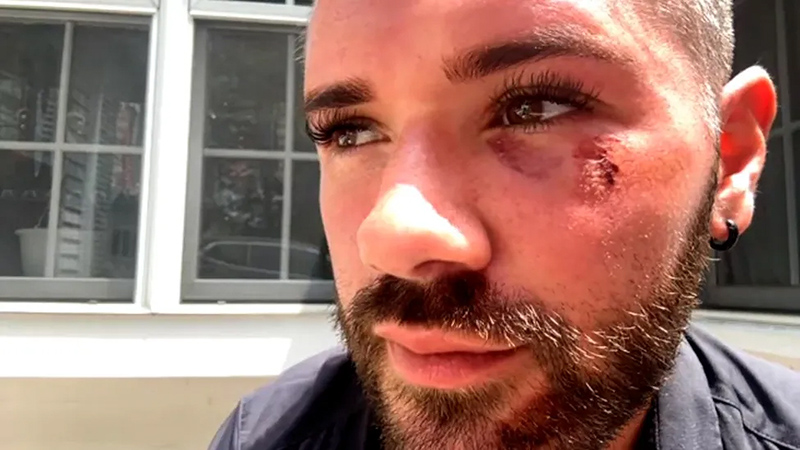
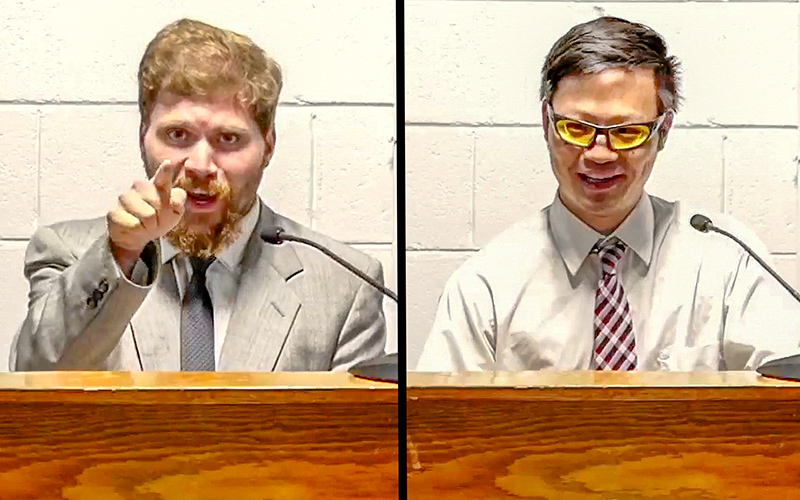
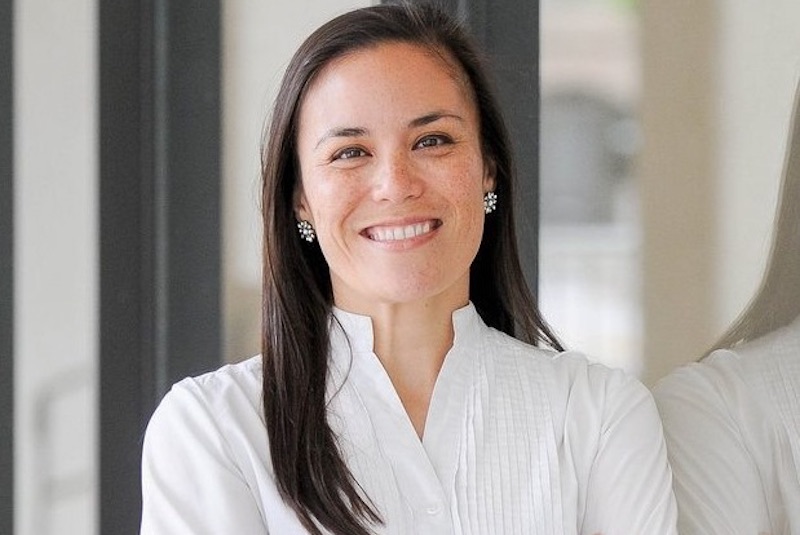















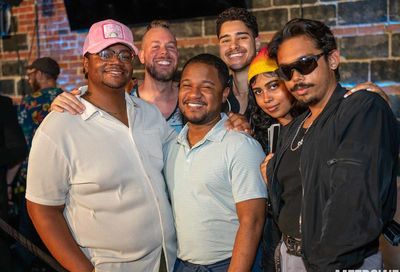
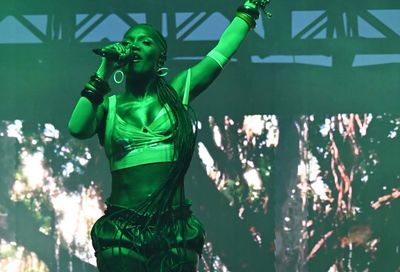
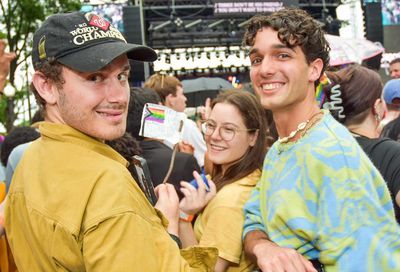
You must be logged in to post a comment.